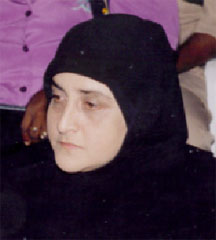Members of the magistracy, police and state prosecutors yesterday benefited from a workshop aimed at enlightening them on ‘A Confiscation Guide for Guyana’, drafted by Alex Ferguson and facilitated by the British High Commission.
The one-day training programme at the Grand Coastal Inn, East Coast Demerara saw participants being tutored on the confiscation of the proceeds of crime, powers of investigation, restraining property and assets and pecuniary penalty orders, among other areas.

Ferguson was asked to draft the guide by the Director of Public Prosecutions, Shalimar Ali-Hack, who said that he offered to do training as well. Ferguson has drafted guidance on the Proceeds of Crime Act 2002 for England and Wales, according to the DPP.
The workshop covered areas such as the disclosure, monitoring and interception orders provided for in the Anti-Money Laundering and Countering the Financing of Terrorism Act 2009. Ali-Hack also said that money laundering and the financing of terrorism are relatively new areas and different from what they are accustomed to.
She noted that a single piece of legislation allows for provision to be made for both criminal charges as well as applications in the High Court in the civil jurisdiction. Fines can be ordered in the judgment and failure to pay will result in imprisonment rather than the average practice of enforcement against the property, she said.
Freezing and forfeiture of assets in relation to money laundering and the financing of terrorism are provided for in the application of the Act. The legislation also caters for assistance to be given to other countries.
The DPP said she hopes the training will whet the appetites of the participants resulting in similar training being done for all those involved. She added that once they are all trained and understand the new legislation they can work together in the interest of the criminal justice system.
According to Ali-Hack, the objective of the Confiscation Guide is to assist prosecutors in their duties. She said her chambers had an integral role to play under the Act since no charge can be instituted for any offence therein except by or with the written consent of the DPP.
Applications for a disclosure order, a restraint order, a pecuniary penalty order or for the freezing of terrorist assets have to be done by the DPP and her chambers.
The Attorney General has to give written consent before an application is made for interception of communications.
Chancellor of the Judiciary, Justice Carl Singh was also in attendance along with Attorney General Anil Nandlall, British High Commissioner Andrew Ayre, and Ferguson.
Justice Singh noted that the training of prosecutors on areas of the law that are complex and technical is of great importance.
He said the efficiency of the court system must be developed and the system must function holistically to achieve this.
Nandlall said the workshop could not have come at a more timely juncture, given that money laundering has become an issue of importance recently.









